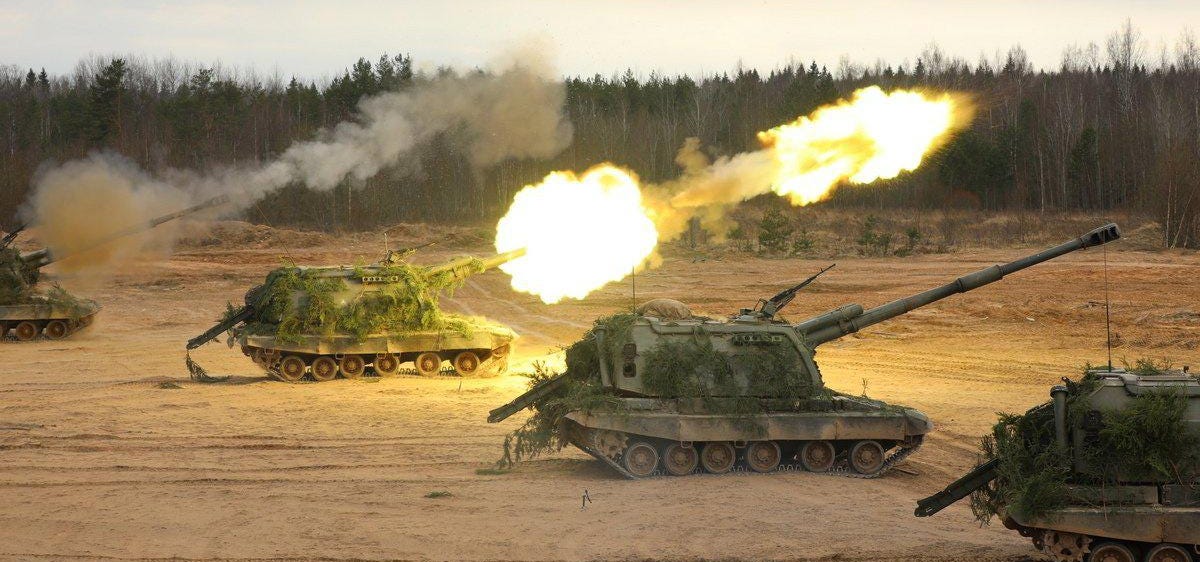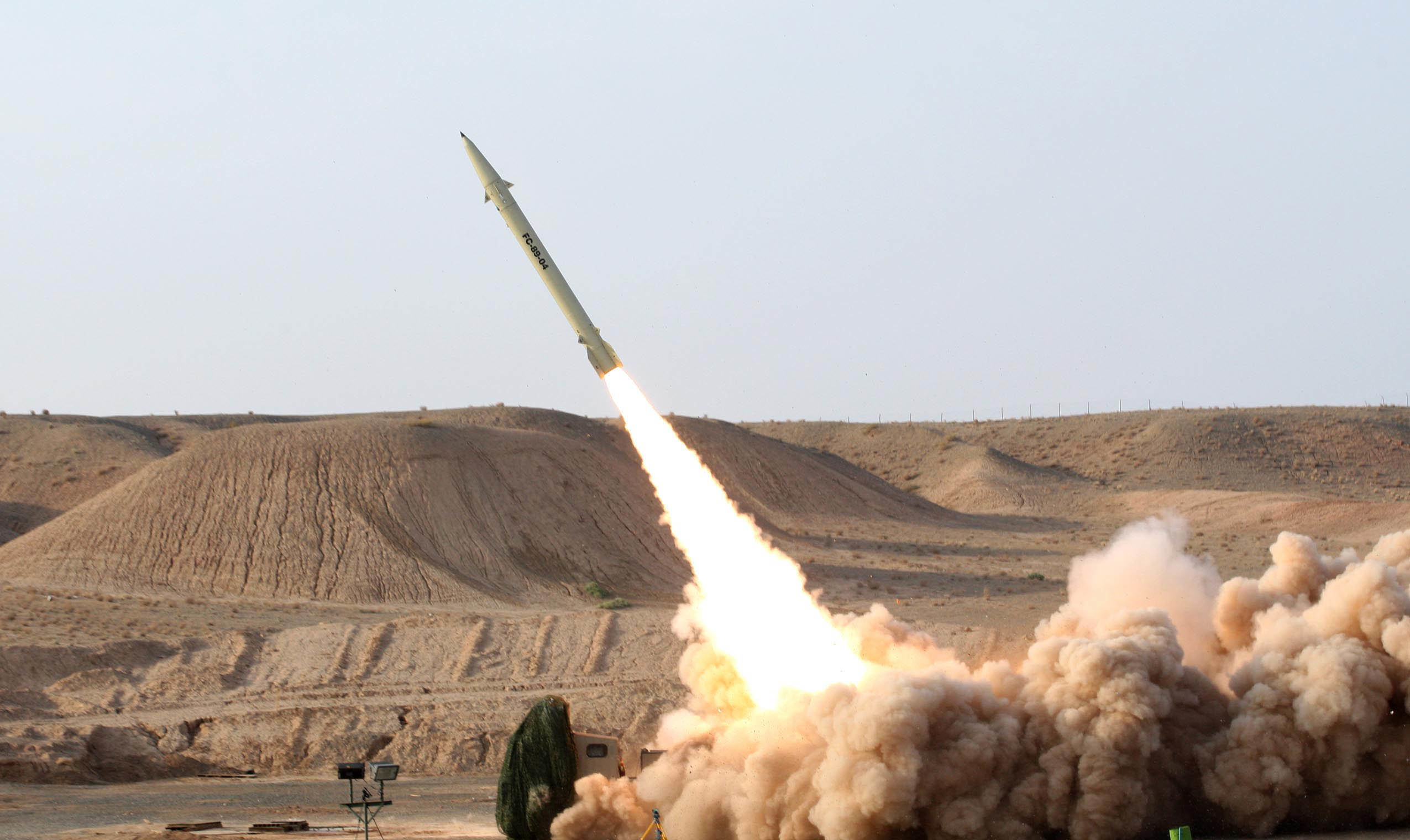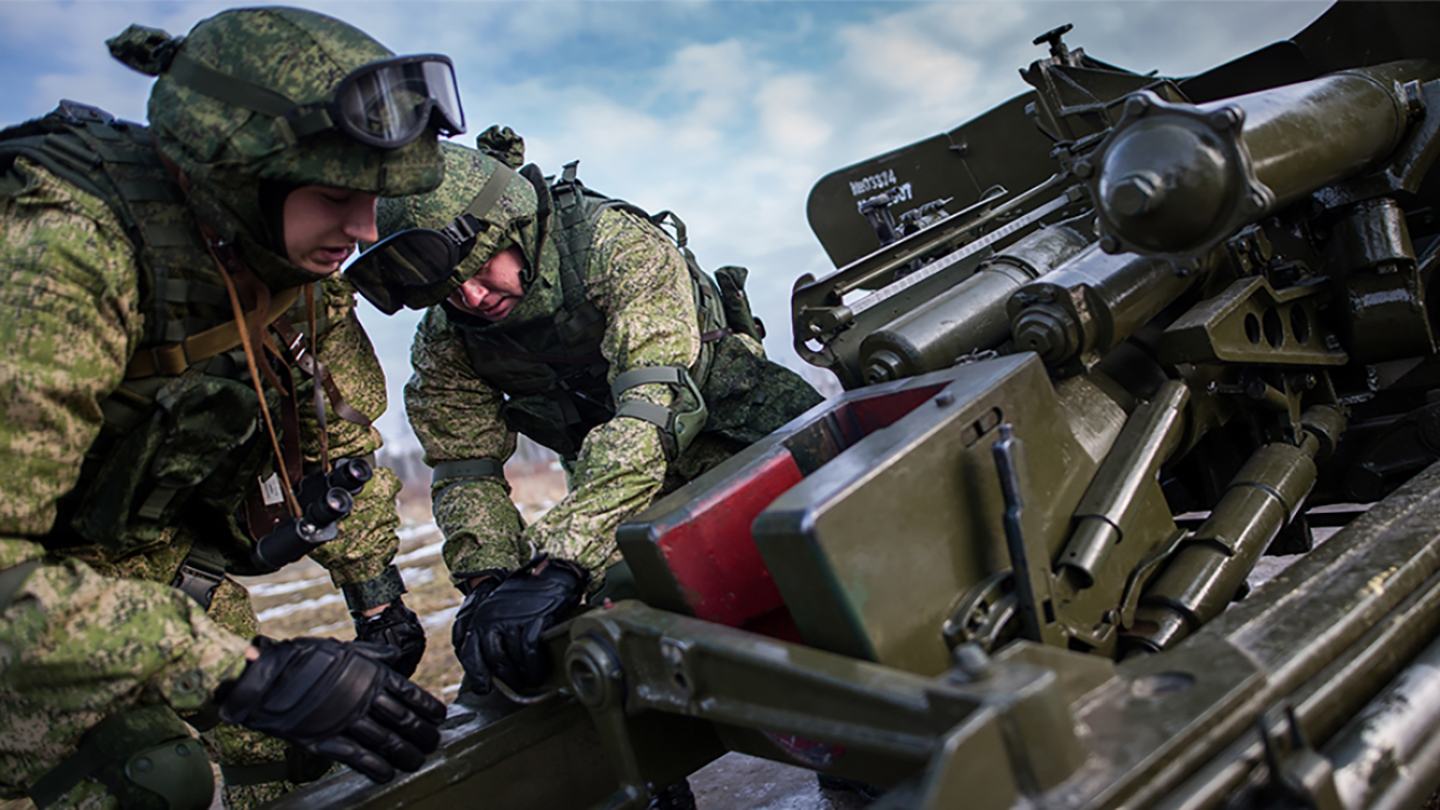In the latest example of the circuitous efforts Russia’s allies are making to arm its war on Ukraine, North Korea has been covertly shipping Moscow a “significant number” of artillery shells, the White House alleged Wednesday.
National Security Council spokesman John Kirby said the U.S. believes North Korea is “trying to make it appear as though they’re being sent to countries in the Middle East or North Africa,” according to The Associated Press.
Kirby declined to provide a specific estimate on the quantity of ammunition being sent to bolster the Russian effort.
The White House is “still monitoring this to determine whether the shipments are actually received,” Kirby said, adding that the U.S. has “an idea” of the source of the ammunition. He declined to offer specifics, saying the administration is trying to determine the best way to respond to North Korea’s actions.
Despite concerns that Pyongyang is shipping the munitions, Kirby claims they are “not going to change the course of the war,” citing the voluminous amount of military aid provided by the U.S. and its allies.
“We don’t believe that they are in such a quantity that they would change the direction of this war or tangibly change the momentum either in the east or in the south” where Russia is on the defensive in two major Ukrainian counteroffensives, Kirby said.
The White House revelation comes two months after The New York Times first reported that Russia was buying millions of artillery shells and rockets from North Korea. The newspaper, citing declassified American intelligence, said it was “a sign that global sanctions have severely restricted its supply chains and forced Moscow to turn to pariah states for military supplies.”

Russia’s pursuit of more artillery ammunition “is a sign that Moscow’s supply problems are likely deeper than just high-end components for cutting-edge tanks or precision missiles,” the Times reported. “If Russia is seeking more artillery shells from North Korea, it is facing a shortage or could see one in the future, and its industrial base is struggling to meet the military demands of the war.”
That disclosure came “days after Russia received initial shipments of Iranian-made drones, some of which American officials said Russia had issues operating. U.S. government officials said Russia’s decision to turn to Iran, and now North Korea, was a sign that sanctions and export controls imposed by the United States and Europe were hurting Moscow’s ability to obtain supplies for its army.”
North Korea, with its massive arsenal of approximately 20,000 active artillery pieces, would have what defense and military analysis Joseph Dempsey described as “the single biggest source of compatible legacy artillery ammunition outside of Russia, including domestic production facilities to further supplies.” Both Iran and North Korea are widely secluded from the rest of the world, sanctioned by the majority of the West. This implies that they have very little to lose and much to gain doing business with Russia and that their supply chains for weaponry are largely organic or, at the very least, work outside of major trade channels. You can read much more about that here.
That isolation is something Air Force Brig. Gen. Pat Ryder, the Pentagon’s top spokesman, raised Tuesday at a press briefing.
Russia, he said, continues “to experience supply shortages when it comes to munitions, particularly guided munitions. It also is indicative of where they’re seeking munitions from – countries like North Korea and Iran – which says a lot about the kind of company they keep and where they stand in the world right now in terms of isolation.”
But clearly, constant and now notorious attacks on Russian ammunition dumps in Ukraine and even beyond have had an impact on Russia’s supply of artillery ammunition. This is exacerbated by over eight months of war, in which Russia used huge amounts of artillery ammunition to level entire cities. Beyond that, it’s clear that the Kremlin has had trouble mobilizing its own industry to produce even low-tech items like artillery shells that are needed to sustain the conflict. All these factors have likely created a perfect storm of sorts for Russian ammunition stocks, or at least a storm is brewing on the horizon.
The White House announcement on Wednesday comes as Ukrainian intelligence says Russia will soon receive more drones as well as the first shipments of short-range ballistic missiles from Iran.

Over the next few days, Iran is planning to send more than 200 additional combat drones to Russia via the Caspian Sea, according to the Ukrainian Defense Intelligence directorate (GUR).
Those shipments will be followed “in a few weeks” by the delivery from Iran to Russia of short-range ballistic missiles (SRBM) via direct flights to Russia and over the Caspian, a source in Ukrainian intelligence told The War Zone on Tuesday. You can read more about that here.
Maj. Gen. Kyrylo Budanov, head of the GUR, told The War Zone last week about Fateh-110 and Zolfaghar SRBMs are coming to Russia sometime this month. You can read about that and much more here. These confirmations come weeks after The War Zone posited Russia would soon pursue these missiles.
Given concerns about Iranian SRBMs and drones going to Russia, the GUR on Wednesday asked for help in identifying supply routes.
“Please provide any information that will help determine the logistical routes of the supply of Iranian weapons and identify the specific persons responsible for these supplies,” the GUR said on its Telegram page.
It is seeking information about those responsible for organizing the supplies, where they live and work, the location of logistic nodes including geolocations of warehouses and railway stations and ports where the arms will be shipped, GUR also wants to know “exact routes by which military goods are moved from Iran to the Russian Federation – license plate numbers and photos of the road and sea transport that moves these cargoes.”
The GUR said that “all persons involved in the supply of Iranian weapons for use in the war against Ukraine violate international law and become complicit in the crimes committed by the Russian Federation on the territory of Ukraine.”
Before we head into more of the latest news from Ukraine, The War Zone readers can get caught up with our previous rolling coverage of the war here.
The Latest
On the battlefield, Ukraine continues to press forward in counteroffensives across several fronts while Russia continued its offensive around Bakhmut in Donetsk, the Institute for the Study of War says in its latest assessment.
ISW offered several key takeaways:
- The Russian MoD started its semi-annual fall conscription cycle despite reports of Russian authorities covertly continuing mobilization measures.
- Russian sources claimed that Ukrainian forces continued to conduct counteroffensive operations in the directions of Svatove and Kreminna.
- Russian forces continued defensive preparations while Ukrainian forces conducted counteroffensive operations in Kherson Oblast.
- Russian forces continued to conduct offensive operations around Bakhmut and around Donetsk City.
- Russian forces continued to strengthen Russian control over the Zaporizhzhia Nuclear Power Plant.
- Russian military structures are reportedly expanding training capabilities.
- Russian occupation officials continued to set conditions for the long-term and permanent relocation of residents from the east bank of the Dnipro River in Kherson Oblast.
Frustrated by the course of the war, Russian generals discussed the potential of using nuclear weapons in Ukraine, The New York Times reported Wednesday.
“Senior Russian military leaders recently had conversations to discuss when and how Moscow might use a tactical nuclear weapon in Ukraine, contributing to heightened concern in Washington and allied capitals, according to multiple senior American officials,” the Times reported. “President Vladimir V. Putin was not a part of the conversations, which were held against the backdrop of Russia’s intensifying nuclear rhetoric and battlefield setbacks.”
Russia’s temporary pullout from the Black Sea Grain Initiative didn’t last long. “Here now is a new piece of good news,” Turkish President Recep Tayyip Erdogan, who engineered the deal with the U.N. in July, said Wednesday during a speech to lawmakers in Ankara, according to the Washington Post. “The grain shipment will continue as it was previously planned.”
The Russian Defense Ministry (MOD) confirmed that Russia was ending its suspension of the deal, saying that the United Nations and Turkey had helped obtain Kyiv’s “written guarantees” not to use the grain corridor for military action against Russia.
Russia on Monday said it was suspending “traffic across the safety corridor” as well as its participation in the initiative until “the terrorist act committed by Ukraine on 29 October against the warships and civilian vessels in Sevastopol is clarified.”
On Saturday, that port city in Russian-occupied Crimea was the target of a multi-prong attack by sea and aerial drones, which we covered extensively here.
The battle for Kherson City, meanwhile, rages on.
Ukrainian forces once again hit an improvised Russian span crossing the Dnipro River near the Antonovsky bridge there. You can read more about why that crossing is critical to both sides in our coverage here.
Elsewhere, Ukrainian artillery continues to cause havoc for Russians, who apparently lost three 2A36 Giatsint-B 152 mm field guns.
We are getting a rare glimpse of a British-provided Stormer HVM short-range air defense system in action with the Ukrainian Army, apparently taking out a Russian drone, according to the Ukraine Weapons Tracker OSINT group.
And up in the skies, Ukrainian pilots are chasing down cruise missiles, BBC reports in an interview with a Ukrainian Air Force pilot with the call sign Juice, someone we have interviewed several times before. Those missions follow a trend of the Ukrainian Air Force using its small fleet of combat jets to go after Russian aerial threats other than airplanes, as we highlighted here.
But Ukraine is firing more than just deadly munitions at the Russians.
They also continue to fire rounds containing messages telling Russians how to surrender.
It’s a message that may be of particular interest to the recently mobilized Russian reservists, who have been complaining about poor training, poor treatment and shoddy equipment. Many, apparently, have already been killed in their short time on the battlefield and even before they get there.
Russian Defense Minister Sergei Shoigu says that by helping defend Ukraine, the West is seeking to destroy Russia.
“Russia undoubtedly is the main target of the collective West’s destructive activities, aimed at wiping out Russia’s economy and military potential and depriving it of the chance to pursue an independent foreign policy,” he said at a joint board meeting of the Russian and Belarusian defense ministries on Wednesday, according to the official Russian news agency TASS.
But as bad as things are going for Russia, don’t expect Putin to leave office anytime soon. So says Reuters, citing an unnamed Western official who said nonetheless that Russia’s “catastrophic” performance on the battlefield has weakened Putin’s position.
“That has to mean that people are talking more about succession, they are talking more about what comes next, they are imagining a life beyond. But what I am not doing is suggesting that that’s any time soon.”
We will continue to update this story until we say otherwise.
Contact the author: howard@thewarzone.com
